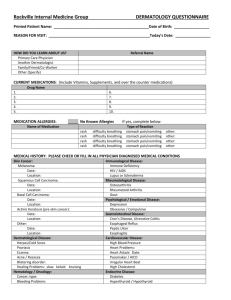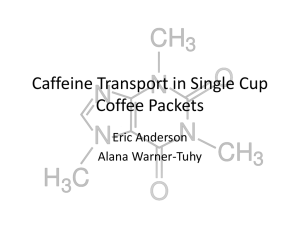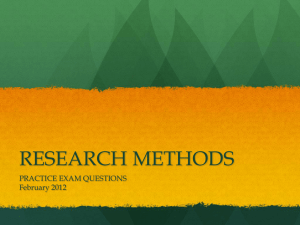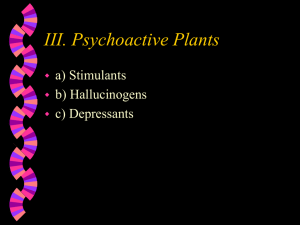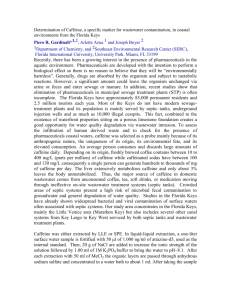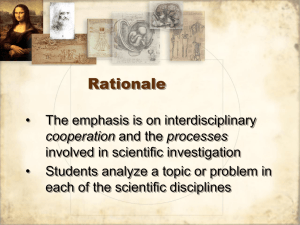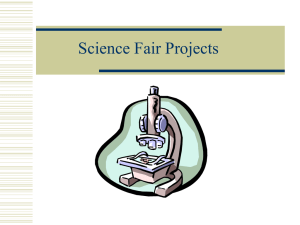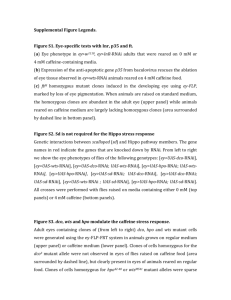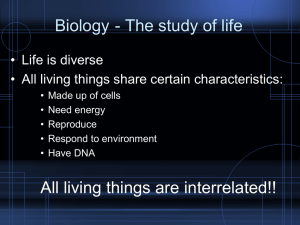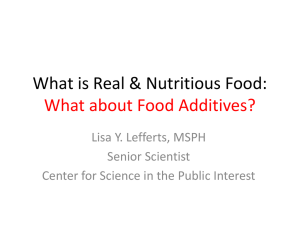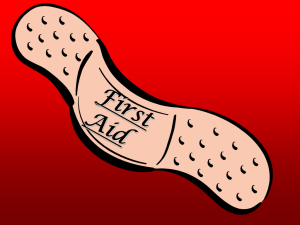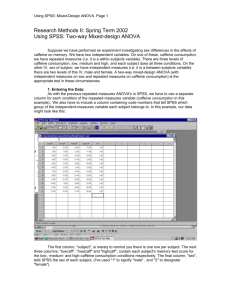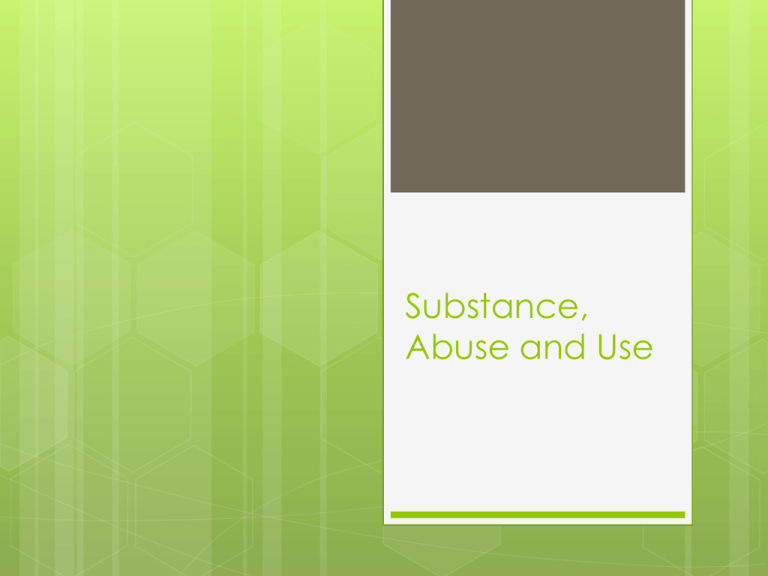
Substance,
Abuse and Use
Classroom Rules….
No
personal stories (talking about
classmates, friends, using names)
BE RESPECTFUL of others in the classroom
You have the right to pass
DRUGS!!
What
is a drug?
Most common among Highschool students
in Manitoba?
Why
would students experiment with
drugs?
Why
wouldn’t students experiment with
drugs?
Drug Any
substance, other than food, that when
taken into the body changes the way that
the body or mind functions.
Most
Common:
Alcohol
Cannabis
Tobacco
DRUGS:
Peer pressure
Enjoying the feeling
Escapism
Curiosity
Emotional factors
Low self-esteem,
high stress, social
status
NO DRUGS:
Not interested
Addictive
Bad for you health
Other
priorities/interests in
life (sports, clubs,
school)
Levels of Involvement
1.
2.
Non-involved
Irregular
3.
Regular
4.
More patterned use (i.e. every pay day)
Harmful
5.
Experimented
Patterned use
Affecting aspects of life (attendance,
grades, work)
Dependent
Tried to quit but with no real success
Feel uncomfortable when sober or not
**All drugs have the potential
to be harmful**
Harmful events can occur in just one use
Real Life Drug Story Video..
http://www.youtube.com/watch?v=lOLb
21bii-A
What do you know about
drugs?
Types?
How
they effect the body?
Type of drugs
CNS
Slow down the body and brain
Withdrawal symptoms are opposite
Cause many physical dependencies
CNS
Depressant Drugs
Stimulant Drugs
Speed up the body and brain
Withdrawal symptoms are opposite
Types of Drugs…..
Hallucinogenic
Drugs
Distort the senses and info to the brain
Withdrawal symptoms:
Agitation,
episodes
flashbacks, anxiety and psychotic
Other:
Medical purposes and are non mind
altering e.g. Penicillin
Non medical uses and are non mind
altering e.g. Anabolic steriods
Types of drugs…….
Alcohol
What
constitutes a drink? Which contains
more alcohol?
1
can of beer (12 oz. 5%)?
5 oz of wine (12%)?
1.5 oz shot of hard liquor (40%)?
Alcohol
Short Term Effects
Slurred speech, vomiting, diarrhea, drowsiness
Upset stomach, headaches and breathing
difficulties
Distorted vision and hearing
Impaired judgment
Decreased perception and coordination
Unconsciousness
Blackouts and coma
Long Term Effects
Injuries
Difficulties in relationships and family problems
Alcohol poisoning
High blood pressure, stroke and heart related
diseases
Liver disease and nerve damage
Permanent brain damage
Vitamin B1 deficiency
Malnutrition, ulcers, gastritis and cancer of throat
and mouth
Tobacco
Types:
Cigarettes
Cigars and Pipes
Smokeless Tobacco
Snuff – powdered tobacco sniffed up nose
Dipping Tobacco- placed between cheek and
gum
Chewing Tobacco- like dip but must be chewed
Negative Effects of Tobacco
Short Term Effects
Increased risk of respiratory illness
Impaired lung growth and function
Shortness of breath
Bad breath and smelly clothes
Long Term Effects
Cancer of mouth, throat, lung, kidney, and stomach
Emphysema
Heart disease
Significantly reduced lifespan – If teens continue their habit
into adulthood:
Over $75,000 in medical care as a result of smoking
Life expectancy up to 20 years shorter than non-smokers
May increase depression symptoms in teens (contradicts
popular beliefs)
Anti-Smoking Ads….
Are
they effective?
How
would design an ad to make it more
effective in reaching teens?
Steroids
Man-
made version of male sex hormone
By mouth or injection
Short Term Effects
Able to exercise longer and harder
Feelings of confidence and enthusiasm
Aggressive, irritable and mood swings (“roid
rage”)
Anxious, unable to sleep well and depressed
Headaches, stomach aches and nose bleeds
High blood pressure and a faster heart rate
Long Term Effects
Increase in muscle size and rapid weight gain
Acne
“moon face”- becomes round
Decreased flexibility
Jaundice
Incurable liver damage
Stroke or heart attack (blood clots and
hardening of arteries)
Paranoid feelings
Violent behaviour
Over the Counter Drugs
OTC Drugs
Examples: Gravol, Benadryl, Tylenol PM, Excedrin
PM, Robitussin, Vicks Nyquil etc.
No laws regarding the purchasing of these drugs,
but illegal to use any substance with the purpose of
getting high.
Short Term Effects
Drowsiness, dizziness, problems with physical
coordination and judgement.
Numbness, nausea, vomiting, racing heart,
hallucinations and increased blood pressure.
Mixing with other medications and alcohol can be
fatal.
Long Term Effects
Depression, confusion, loss of energy, vomiting
and difficulty thinking and socializing.
Loss of coordination and reduced ability to
learn.
Can develop psychogical and physical
dependence.
OxyContin
Pain
medication prescribed by a doctor
Has become one of the most abused
prescription drugs in the U.S. and Canada
Abusers crush the tablet to ingest or snort, or
dilute in water and inject.
Short Term Effects (if abused)
Constipation, loss of appetite, sweating
Nausea and vomiting
Slight decrease in breathing rate
Constricted pupils
Long Term Effects
Depression, difficulty concentrating and
sleeping, sexual problems
Constipation
Disrupted menstrual cycles
Body stops making natural painkillers (severe
pains when drug leaves the body)
Lower heart rate, blood pressure and breathing
Disorientation, convulsions and hallucinations
Possible death from high doses
Psychological and physical dependence
Inhalants
Solvents,
aerosols, inhale to get high
Gasoline, automobile fluids, lighter fluid, paint
etc.
Also
known as “sniff”
Quickly travel to heart, heart, lungs,
bloodstream, central nervous system and brain
(is not filtered through digestive system, kidneys
and liver like other drugs)
Short Term Effects
Death can occur after only one use!
Irregular heartbeat resulting in heart attack
Breathing stops due to suffocation from choking
on vomit
Short Term Effects
Short
high (few min-half hour) followed by
sleepiness
Muscle weakness, clumsiness and slowing of
movements
Dizzy, giddy, headache and sensitive to light
Chest and stomach pain
Slurred speech, blurred vision, ringing in ears
Loss of appetite, nauseam throwing up, bad
breath and drooling
Nosebleeds, sores on mouth and nose
Nervousness, disorientation
Aggressiveness, violent behaviour, loss of
judgement
Hearing and seeing things that are not there
Long Term Effects
Mood swings and personality changes
Lack of energy
Memory loss, attention, thinking and learning
problems
Movement and coordination problems
Severe and permanent brain damage
Uncontrollable eye movements, loss of hearing
and sense of smell
Nerve damage starting in hands and feet
Severe damage to lungs, kidneys, liver, heart,
blood, immune system and senses
Caffeine and Energy Drinks
What
In
has the greatest amount of caffeine?
your table, order the following drinks:
NOS (473 ml)
Wired (710 ml)
Can of coke (355 ml)
Red Bull (250 ml)
Rockstar (473 ml)
Full Throttle (473 ml)
Coffee (273 ml)
Caffeine….
1.
2.
3.
4.
5.
6.
7.
Wired-----------505 mg of caffeine
NOS-------------260 mg of caffeine
Rockstar-------160 mg of caffeine
Full Throttle----144 mg of caffeine
Coffee----------76-179 mg of caffeine (brew)
Red Bull---------80 mg of caffeine
Can of Coke—36-46 mg of caffeine
Energy Drinks
Short Term Effects- 1 Energy Drink/day
Feel less drowsy, improved mood, more alert,
attentive and able to concentrate
Increased blood pressure and body temperature
Need to urinate and have problems sleeping
More than 1 drink
Irritable, nervous, restless and agitated
Headache, nauseous and rapid heart beat
Long Term Effects- more than 600 mg daily
May cause depression, upset stomach, anxiety
and chronic sleep problems
Cocaine/Crack
Same drug
Cocaine: white crystal powder and can be smoked,
snorted or injected
Crack: rock like form of cocaine and is usually smoked
Short Term Effects
Enlarged pupils, dry mouth and stuffy nose
More energy, alertness, less of a need to eat/sleep and
feelings of euphoria
Increased heart rate, breathing and blood pressure
Anxiety, unpredictable behaviour and hallucinations
Single dose can contribute to seizures, heart attack or
death from stroke
Long Term Effects
Chapped and damaged nose
Headaches and problems experiencing
pleasure when not under the influence
Sexual dysfunction in men
Attention, memory and behavioural problems
Weakened immune system
Tooth decay, weight and appetite loss
Seizures, health problems and stroke
Depression and paranoia
Ecstasy
Made in illegal labs, effects usually begin 60-90 minutes
after taken and last 3-6 hours
Short Term Effects
Pleasure, confidence and increased sociability
Increased energy, feeling more alert and awake
Dilated pupils, rapid eye movement and blurred vision
Rapid heart rate, breathing and blood pressure
Clenching jaw muscles and teeth grinding
Dehydration, dry mouth and throat
Nausea, vomiting and lack of appetite
Distortions in thinking and time
Hallucinations
Long Term Effects
Depression, forgetfulness, poor concentration
and thoughts of suicide
Sleeping problems, paranoia, tiredness and
panic
Liver damage
Acne-like rash
Teeth and jaw damage from clenching
Aggressive behaviour
Death from heart or kidney failure (caused by
dehydration or abnormally high body temp)
Cannabis
Contains
THC and used to produce
Marijuana
Hashish (brown/black and chunky looking)
Hash oil (sticky oil, brown, black, red or clear)
Smoked
or eaten, if smoked (effects felt within a
few minutes and lasts 3-4 hours if eaten may take
more than an hour to be felt and may continue
to effect uses the next day)
Short Term Effects
Lowered skin temperature, red eyes, drowsiness
and slurred speech
Increased heart rate and blood pressure
Slow reaction time and poor coordination
Concentration and memory problems
Feelings of extreme pleasure (giddy)
Strong desire for food and feeling that time is
going slowly or quickly
Feeling of being separated from reality
Panicky feelings or paranoia
Long Term Effects
Short term memory problems
Difficulty problem solving and learning
Breathing problems and increased risk of
cancer
Reproductive system problems
Decreased energy, motivation and interest in
life
Fearfulness and anxiety after a high dose
Magic Mushrooms
Hallucinogenic mushrooms
Found in the wild or harvested indoors
Short Term Effects
Relaxed and tired feelings
Mood swings and changed sense of space, time and
consciousness
Feeling heavy or very light and changes in sight, smell,
hearing, taste and touch
Hallucinations and feeling confused or paranoid and
dilated pupils
Mild increase in BP, heart beat and breathing
Numbness of tongue, lips and mouth
Long Term Effects
Little research, not much known……
Anti- Drug Ad….
Create an Anti- Drug advertisement/poster based on one
of the drugs discussed (or one that is approved by Miss H.)
Can use any medium you choose (Glogster is a great
program to use)
Be creative! What would stop you from doing drugs?
See Rubric for outline
Due on Test day!
MADD Video
https://www.youtube.com/watch?v=UuFteOghes
Changing the World Relationship with
Alcohol- TED Talks
https://www.youtube.com/watch?v=DJSLZ
GJaQdc
Legal Issues/Consequences of
Drug Use and Abuse:
Blood
Alcohol Concentration
Legal Limit is 0.08%- charges laid
80 milligrams of alcohol in 100 millilitres of blood
Over 0.05%- suspended license
0.0% BAC- graduated license
Controlled
Drugs and Substances Act
List of illegal drugs
Punishments for possession, use and distribution
Legal Issues continued:
Class
Debate Activity
Groups 1 & 2: Marijuana for personal use is
ethical.
Groups 3 & 4: Professional athletes need to use
performance enhancing drugs to win (think Lance
Armstrong).
Groups 5 & 6: Cigarette Manufacturers should
compensate all costs associated with the medical
care of smokers.
How to Say No…
DECIDE
MODEL (decision making
process):
D- define the problem
E- establish the criteria
C- consider all the alternatives
I- identify the best alternative
D- develop and implement a plan of action
E- evaluate and monitor the solution and
feeback when necessary
Case study #1:
1.
What would you do in this situation? With
a partner use the DECIDE model to
discuss
2.
How would you say no to drugs or
alcohol in the first place to not put
yourself in this situation?
Case Study #2……
Elizabeth’s
Story
With a partner discuss strategies Elizabeth
could have used to chance the course of
her life.
Share with class
Test Review: “Family Feud”
4
Teams
Designate team captain
Decide on family name
Test Format
10
Multiple Choice Questions
5 True/False
1 “Listing-Type” Question
1 Short Answer- Reflection on decision
making/applying to your life *hint/hint*
References
SEE ATTACHED IN APPENDIX

